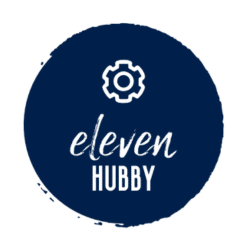Government funding for elderly healthcare services

Government funding for elderly healthcare services is essential for providing quality care, enhancing resources, and improving patient outcomes while addressing challenges like competition and bureaucratic processes.
Government funding for elderly healthcare services plays a crucial role in enhancing the quality of care seniors receive. Have you ever wondered how this funding impacts your loved ones? Let’s dive deeper into its significance.
Understanding government funding for healthcare
Understanding government funding for healthcare is essential for ensuring that elderly individuals receive the care they deserve. This funding provides vital resources to healthcare services that cater specifically to the needs of seniors.
Types of Government Funding
There are several types of government funding available for healthcare services. These include federal grants, state funding, and Medicaid programs. Each type has its own set of rules and benefits that can significantly impact healthcare providers.
Importance of Understanding Funding Sources
When providers understand where their funding comes from, they can better allocate resources. This knowledge helps in planning services effectively. Knowing the specific needs of the elderly community ensures that they receive appropriate support.
- Federal grants support innovative healthcare programs.
- State funding often addresses local needs.
- Medicaid programs cover a wide range of elderly care services.
Moreover, understanding eligibility requirements is equally important. Some programs require specific criteria to be met for assistance. Keeping informed about these can help individuals and families navigate the complex landscape of healthcare funding.
Funding can also lead to improved quality of care. When services receive appropriate funding, they can hire skilled professionals and provide adequate training. This ultimately enhances the overall care received by elderly patients.
Challenges in Securing Funding
Despite the availability of funding, many healthcare providers encounter challenges in securing it. Bureaucratic red tape can delay funding approvals, affecting service delivery. Additionally, not all healthcare services may meet the stringent requirements for receiving funds.
Understanding these challenges is crucial. It allows providers to develop strategies to overcome barriers, ensuring that elderly patients have access to necessary healthcare services.
In conclusion, grasping the intricacies of government funding for healthcare plays a significant role in the effective delivery of services. It empowers providers to advocate better for their patients and ensures that the elderly population receives the support they need.
Importance of funding in elderly care
The importance of funding in elderly care cannot be overstated. Adequate funding is essential for providing high-quality services to seniors. It ensures that they receive the attention and care needed to maintain their health and well-being.
Why Funding Matters
Funding allows healthcare providers to hire skilled staff and maintain facilities. When services are well-funded, they can operate efficiently and offer better resources. This leads to improved patient care and satisfaction among the elderly.
Consequences of Insufficient Funding
Without sufficient funds, many healthcare services struggle to meet the basic needs of their clients. Shortages in staffing can occur, which directly affects the quality of care received. In many cases, this can lead to waiting lists for essential services, leaving seniors without necessary support.
- Underfunded facilities may lack essential medical equipment.
- Inadequate funds can prevent training of healthcare staff.
- Senior care programs may be forced to reduce available services.
Additionally, limited funding often restricts access to specialized treatments. Seniors may be unable to receive proper care for chronic conditions. This can lead to worsening health issues over time.
Support for elderly care funding is crucial for improving community health. When fund allocation is prioritized, everyone benefits. Communities can thrive with healthy, active seniors who contribute their experiences and wisdom.
Advocating for Increased Funding
Encouraging local and federal governments to support elderly care funding is essential. Advocacy can take many forms, from community outreach to legislative engagement. By raising awareness about the needs of seniors, communities can push for better funding initiatives.
In summary, recognizing the importance of funding in elderly care is essential for creating a supportive environment. Enhanced funding not only improves healthcare delivery but also fosters a greater quality of life for seniors.
How to access funding for healthcare services

Accessing funding for healthcare services can be a crucial step for providers who aim to support their elderly clients effectively. It’s essential to know where and how to apply for these funds to ensure that seniors receive the care they need.
Identifying Funding Sources
The first step to accessing funding is identifying the various sources available. Government programs at both the state and federal levels often provide grants and support. Community organizations and nonprofits can also offer valuable resources.
- Federal assistance programs like Medicare or Medicaid.
- State health department grants targeting elderly care.
- Local charities focused on supporting seniors.
Healthcare providers should explore local and federal websites to find detailed information about available funding opportunities. Many resources provide guidelines on eligibility and application processes.
Application Process
Once potential funding sources are identified, the next step is the application process. This can often be complex and requires careful attention to detail. Preparing a thorough application can significantly increase the chances of receiving funding.
Gathering necessary documentation is essential. This may include financial statements, service outlines, and project proposals. Having a clear description of how the funds will be used can also strengthen the application. Ensuring compliance with application requirements is crucial too.
Engaging with local representatives may help in navigating the funding landscape. They can provide tips on successful applications and may even advocate on behalf of healthcare providers. Networking with other healthcare organizations can also lead to shared resources and information about available funding.
Utilizing Available Resources
Additionally, using grant-writing services can be beneficial. These services can help create structured proposals that stand out. Knowledgeable grant writers understand the nuances of different funding opportunities and how best to present information.
It’s also important to follow up regularly once applications are submitted. Keeping communication open and transparent can help address any issues that may arise during the review process.
Impact of funding on quality of care
The impact of funding on quality of care is critical, especially in elder care. When funding is adequate, healthcare providers can deliver better services to seniors, significantly improving their overall health and well-being.
Enhanced Resources and Staffing
With sufficient funding, healthcare facilities can invest in necessary resources and staff. This results in hiring more qualified professionals, which directly affects patient care. Additionally, well-funded facilities can offer ongoing training and development for staff, ensuring they stay updated with the latest best practices in geriatric care.
Improved Patient Outcomes
Healthcare services with robust funding often see better patient outcomes. Enhanced resources allow for more specialized treatment plans tailored to individual needs. Better funding can lead to:
- Increased access to specialists and necessary medical interventions.
- More comprehensive health assessments for seniors.
- Better mental health support services.
These factors contribute to healthier, happier seniors, which is the primary goal of elder care services.
Technology and Innovation
Investing in technology is another way funding enhances the quality of care. Facilities can implement advanced medical technologies and software, improving efficiency in operations. For example, electronic health records (EHRs) streamline patient data management, allowing for quicker decision-making by healthcare providers. Telehealth services become more accessible, offering remote consultations and follow-ups for elderly patients who may have mobility challenges.
A strong funding base also encourages innovation in care practices. Facilities can pilot new programs and approaches to address specific challenges faced by the elderly, such as chronic disease management and preventive health care strategies.
Challenges in securing government funding
Securing government funding can be challenging for many healthcare providers. Understanding these challenges is crucial for effectively navigating the funding landscape and improving care for the elderly.
Bureaucratic Hurdles
One major challenge is the complex bureaucratic process involved in applying for funding. Many organizations face lengthy and detailed application procedures. To be successful, providers must adhere to numerous regulations and reporting requirements, which can be overwhelming.
Competition for Resources
Another significant issue is the intense competition for limited resources. Many healthcare providers vie for the same pool of funds, making it challenging to stand out. Demonstrating clear outcomes and effective service delivery can help in advocating for funding.
- Highlighting success stories can strengthen funding applications.
- Building partnerships can enhance credibility and outreach.
- Networking with other service providers can reveal collaborative funding opportunities.
Competition is particularly fierce in underserved areas, where providers may struggle more than larger, established facilities. Smaller organizations often need help to create compelling applications under tight deadlines, further complicating the process.
Administrative Costs
The administrative costs associated with managing funding can also be a barrier. Once funding is secured, resources must be allocated to track and report on expenses. This often creates additional workloads for staff, detracting from patient care.
Moreover, keeping up with changing regulations and compliance requirements can stretch resources thin. Ensuring that all guidelines are followed is critical to avoid penalties or loss of funding. This requires continuous training and education for staff members.
In many cases, these challenges can seem daunting. However, by establishing clear communication channels with funding agencies and leveraging community support, healthcare providers can improve their chances of successfully securing the necessary funding.
FAQ – Frequently Asked Questions about Government Funding for Elderly Healthcare Services
What are the common challenges in securing government funding for healthcare services?
Common challenges include bureaucratic hurdles, intense competition for limited resources, and high administrative costs associated with managing funding.
How can healthcare providers improve their chances of receiving funding?
Healthcare providers can improve their chances by building partnerships, showcasing successful outcomes, and clearly demonstrating how funds will enhance care.
What types of funding are available for elderly healthcare services?
Funding can come from federal assistance programs, state health department grants, and local community organizations focusing on aging populations.
Why is funding crucial for improving the quality of care for the elderly?
Adequate funding allows for better resources, staffing, and technology, all of which lead to enhanced patient outcomes and overall satisfaction in elderly care.






